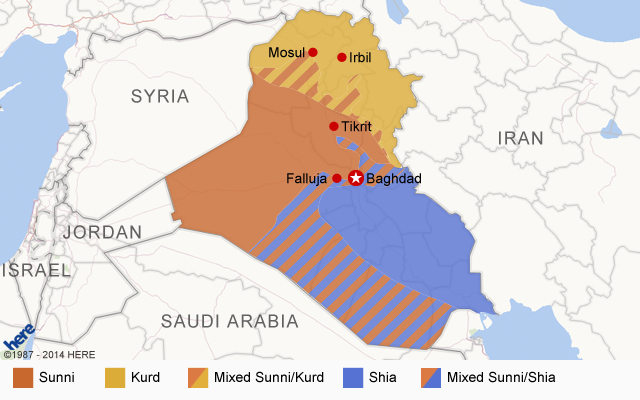Tanker vessel on the high sea
http://www.thisdaylive.com/articles/redressing-past-wrongs-in-crude-term-lifting-contracts/181110/
Chika Amanze-Nwachuku writes that the recent decision by the federal government to allocate crude contracts to mainly Nigerian companies is proper measure to right past wrongs in the management of the nation’s oil resources
Over the years, permits for yearly crude term lifting contracts were granted to mainly foreign companies that have no known investments in Nigeria.
Most of these regular beneficiaries of crude lifting contracts are ‘brief case’ concerns, which only existed in the books of the Corporate Affairs Commission (CAC).
Other regular beneficiaries were few Nigerian companies owned by retired military chiefs, top politicians, government’s cronies and their fronts.
In violation of stipulated guidelines for lifting of Nigerian crude, the Crude Marketing Department of the Nigerian National Petroleum Corporation (NNPC), acting on the directives of Nigerian authorities and the powers-that-be in the ministry, allocated higher volumes of Nigerian crude to ‘paper’ companies, which in turn sell the allocations to more established traders since they lacked the capacity to handle the business.
Some international oil traders like Glencore, Travigura and Vitol were are among the among the most favoured as they often got as much as 60,000 barrels per day (bpd).
In 2008, about 42 companies were granted permit to export between 30 to 60 bpd of crude oil. Of the 28 companies, only seven were said to have investments in Nigeria, the others were said to have no known investments in the country.
The list obtained by THISDAY then, showed that foreign companies were allocated biggest volumes of 60,000bpd each, whereas the few indigenous companies got between 10,000 and 30,000 bpd.
The companies that made the 2008/2009 list were Addax, Arcadia, Glencore, Vitol, Gunvor and Trafigura. Others were MRS, Petrodel, J&S Investment Services (Lukoil), Oando, Taurus, and Camac.
The foreign refining companies in the list were PMI Refinery, Isla Refinery, Fujairah Refinery, PetroEnergy Refinery Corp, Lanxing Refinery and Sun Oil Refinery. The rest were: Indian Oil Corporation, Tema Oil Refinery (Ghana), Senegal and Ivory Coast, Duke Oil, Napoil, Calson, Nigermed and China’s Sinopec, which was granted permit on the bases of bilateral relationship.
The long list also included Gembrook Energy Limited, J & S Inv. Services Ltd, Team Trade International, Amg Petro - Energy Ltd, Kingsbury Trading, Ommart Ltd, Roger Princeton Ltd, Global Gas & Energy Ltd, World Wide Energy, Dainom Nig. Ltd, Macau Ltd, Tacorr, Elan Oil Ltd, Alphapetro World Wide, Attock Oil, Abacus Oil and Phenoil Ltd.
Following the criticisms that greeted the allocations, the late President Umaru Musa Yar'Adua was said to have directed the NNPC authorities to prune the list, having failed to produce the criteria for award of the contracts to mainly foreign entities.
Also, the corporation’s failure to come up with convincing reasons why most of the companies should be retained in the crude contract list, prompted the late president to slash the list to only about 24, notwithstanding that the NNPC authorities tried to convince him that the foreign traders were well known to the corporation.
However, despite government’s efforts to redress the wrongs in crude contracts allocation and the pressure on the NNPC by indigenous stakeholders to review the crude contracts guidelines with a view to giving indigenous players preference to participate in the deal, foreign players still dominated the crude lifting business.
In June, 2010, the corporation released very a new guideline for the oil lifting contracts. The guideline stipulated among others, that companies, which wished to lift Nigerian crude must prove that they are bona fide end users and that they are established and globally recognised large volume traders with evidence of their global network, their activities, and volumes of crude oil handled in the last three years.
Participating companies, according to the guidelines were also required to provide evidence that they are registered Nigerian companies with operations in Nigeria's oil and gas industry.
They were also to possess a minimum annual turnover of at least $100 million, in addition to net worth of not less than $40 million.
Another condition was that participating firms must show commitment to the development of the Nigerian economy by investing in any number of opportunities that abound either in the oil industry or gas sector.
Selected companies were then required to post a $1 million performance bond through a first class Nigerian bank in addition to the regular crude oil contract provisions, while special or privileged allocations were completely ruled out. Only few local companies participated in that year, because most local firms were unable to meet the condition.
In line with the spirit and letters of the Nigerian Content Act, the guidelines issued for crude oil lifting contract in 2011 required participants to show evidence of compliance with the Act.
The previous guidelines also required evidence of yearly turnover of $500million; minimum net worth of $100million; and investment in the upstream sector to increase national oil reserves and production capacity.
Other requirements were: evidence of investment in the downstream projects, refining, petrochemicals, distribution and storage of petroleum products, gas utilisation projects; Independent Power Projects (IPP); and readiness to invest in railway. Again many indigenous firms could not scale the hurdle.
More stringent condition
A more stringent condition was provided in the 2012 tender. This time, the NNPC excluded investments in the country as part of the criteria and instead jacked up the yearly turnover and net worth to $600 million and $300 million, respectively.
The scheme favoured mostly foreign contractors with very deep pockets and easy access to international capital, because the guidelines also provided that each applicant would pay a $5 million deposit before buying the first oil cargo.
In apparent bid to ensure that indigenous companies with massive investments in Nigeria were disqualified, the NNPC also required that the applicants should be bona fide end users of crude oil who own refineries and should also provide evidence of their facilities and the volume of crude oil refined over the last three years.
Indigenous operators fault guidelines
But the crude lifting guidelines had drawn the ire of indigenous stakeholders, who noted that it violated the Nigerian Content Law, which was signed by President Goodluck Jonathan on April 22, 2010.
The local operators alleged that the NNPC authorities deliberately made the conditions very stringent so as to favour only foreign contractors for selfish interest.
They pointed out that Clauses 2 and 3 of the Nigerian Content Act provided that indigenous Nigerian companies should be given first consideration in the award of all contracts in the oil and gas sector, and posited that by making the conditions too stringent, the corporation had effectively excluded local companies from the crude lifting contracts.
They further argued that contracts were normally awarded to the lowest bidder but as part of the strategies to boost increased local participation in the industry, the Nigerian Content law also provides that indigenous contractors must be awarded certain contracts, even when their bid price is higher than that of foreign contractors by up to 10 per cent.
They posited that the importance attached to the Nigerian Content law was evidence in the guidelines issued for crude oil lifting contract in 2011 wherein participants were even required to show evidence of compliance with the Act.
However, the NNPC maintained that it had not violated any law, and explained that the measures were aimed at ensuring that only "fit and proper" firms participated in the crude oil term contract.
Due to the stringent guidelines, only 21 Nigerian firms were among 50 oil companies which scaled the screening by the NNPC to lift crude during the stated period.
Local firms win big
Unlike the previous contract, where stringent conditions had to be met, thereby denying Nigerian companies the opportunity to participate in the crude term lifting business, the 2013/2014, as well as the 2014/2015 guidelines were favourable to indigenous companies.
Specifically, the 2013/2014 crude term contracts required applicants to show details of their facilities, markets and volume of crude processed over the previous three years or, in the case of traders, evidence of its global network, activities and volume of crude oil handled over the previous three years.
However, indigenous companies were exempted from these stringent entry requirments and were only required to show evidence that they engage in Nigerian oil and gas business. The idea was to make it easier for more indigenous companies to participate in the deal.
Also, of the 43 companies that obtained permit according to the recently expanded list for 2014/2015 crude lifting contracts, 28 winners were Nigerian firms, with two new bilateral government deals with Chinese state refiner Sinopec and India's state-owned refiner Indian Oil Corporation added.
Although, it has not been ascertained whether the list released last week, which expanded the contracts to about $52 billion worth of crude, up from $40 billion in the April list was final, more than half of the beneficiaries were Nigerian companies.
The bulk of the Nigerian companies, according to reports, would receive about 30,000 barrels per day (bpd) during this period.
In a break with tradition, no contracts were issued directly to global traders Glencore, Vitol, Trafigura or Gunvor, with only Switzerland's Mercuria awarded a deal. Industry sources said that these firms may still trade Nigerian oil, either through buying from Nigerian firms or through partnerships.
The total number of deals with foreign governments was just three, including Malawi, down from 10 last time. Deals with neighbouring West African countries Senegal, Burkina Faso and Ivory Coast were not renewed. Of the eight newly added Nigerian companies, only three were awarded contracts in the last round.
The new list also comprised subsidiaries of Emmanuel Ojei's holdings
company Nuel Okei, Emo Oil and Petrochemical Co and Team Trade Petroleum Development Co.
Minister defends decision
Minister of Petroleum Resources, Mrs. Diezani Alison-Madueke had explained that the contract awards to mainly indigenous companies, was aimed to encourage effective local participation in the industry.
She said the decision was a deliberate policy of the Federal Government to encourage Nigerians to participate in the oil and gas sector of the economy.
In a statement issued by the Group General Manager, Group Public Affairs Division of the NNPC, Mr. Ohi Alegbe, over 60 per cent of the 2014 to 2015 annual crude lifting contracts was awarded to local firms after a painstaking pre-qualification process.
The balance of 40 per cent was shared among some international trading companies, refineries and some countries with bilateral trade agreements with Nigeria.
“When we unveiled the Nigerian content law a few years back, the overriding principle was to grow indigenous capacity in an aggressive manner.
“I am happy to report that today, in the oil and gas sector, Nigerian content has been placed on the path of irreversible progress,” the minister was quoted to have said.
The Nigeria's policy has been to increase the role played by local firms, both in operating oil blocks and crude oil trading. The main aim was to bring to an end, decades of control over the business by foreign majors.
Although many Nigerians have argued that the beneficiaries are mainly government cronies and political backers, stakeholders however viewed this development as a proper measure to right the past wrongs in the award of crude term lifting contracts.











